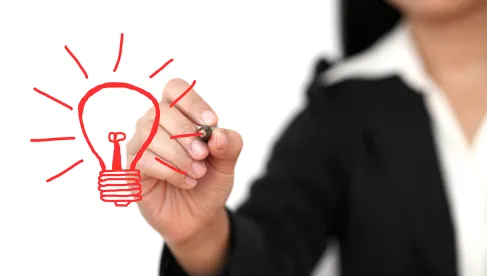In Part I of our series on wellness in the legal industry, Elena Rand, a former litigator and legal executive coach with a Master’s degree in Clinical Social Work and current CMO of Wiggin and Dana identified why the legal industry needs to understand chronic stress and how it impacts the body, and how mindfulness, even at a basic level, can help improve both individual attorney’s performance and the often stressful law firm environment.
Today, Ms. Rand goes over the basics of a mindfulness practice, as well as addressing some common barriers to practicing mindfulness and how to overcome these barriers.
What are some simple practices that a novice or even a skeptic might be able to take on to start feeling some small benefit? And along those lines, do you need to devote a lot of time to mindfulness practices to begin to see a difference? What kind of commitment level do you need to show?
There is no right or wrong way to do mindfulness practice. There are no absolute time requirements or limits and there is no Olympic medal for “ great mindfulness”. There’s no level of perfection, there is nothing to “achieve” or “strive for” and that’s a key part of the practice. In fact, if we go back to what mindfulness is, it asks us to be accepting of whatever comes up and sometimes whatever comes up is “I only have five minutes to breathe and guess what? In those five minutes, I'm obsessing about that conversation that just happened down the hall,” but mindfulness is being aware of exactly that, and accepting of that. That is the work. It’s saying, “you know what, I just spent five minutes inhaling and exhaling and trying very hard not to think about that conversation, and all I did was think about that conversation.” If you brought your attention to that in the moment and then proceeded to pay attention to the next moment, and the next moment… well, then that is mindfulness meditating. You were just meditating. I want to debunk the idea that mindfulness is this sort of clear-minded perfection that will alleviate all your worries, obsessions, preoccupations etc.
You can do it for five minutes, you can do it for 10 minutes, you can do it for three minutes, you can do it in any number of ways. But again, it's intentionally bringing your attention to what's arising and accepting it.
As to how do you actually do it—well, definitely one way that we've all heard of is breathing techniques. And there's a lot that's been written about just focusing on your breath.
Inhale, exhale, inhaling and exhaling for any number of minutes is a start. And during that time what will invariably happen is what's been called monkey mind, which is a flurry of thoughts. Everything from your clients, a brief for the meeting you have a four o'clock as well as an argument you had with your spouse and your conversation with a firm partner. All of that's going to be going through your mind while you're just trying to inhale and exhale. And that's the practice. And the idea is to gently bring your attention back to the singularity of your breath over and over and over and over again. So that's one modality, but some people I've worked with really aren’t into the breathing thing, and they ask for another way.
Another way is intentional activity. Select something that you know you do every day. Eat lunch, go for a walk, drive home and bring your attention to that action. What does it feel like? What does it feel to actually taste my food? What is it? How many times do I chew? What does it feel like to actually swallow that food? Am I hungry still? Am I not? This is a mindfulness practice that focuses on taking an action.
A third of mindfulness practice is what I call sort of a body scan. This is just sitting, not focusing necessarily on your breath, but focusing on your body, which we don’t always do. I mean, some people joke that our bodies are there to help us carry our heads from meeting to meeting. The reality is that many of us are not in touch with our bodies. The body scan is another opportunity to kind of pause, and bring explicit attention to your body. Start with your feet. What do your feet feel like? Are they grounded? Can you feel your feet? Can you feel your ankle? And then sort of work your way through your body and what the sensation is. You're really looking for that sensory attention. So there are three examples of ways that you can introduce mindfulness in a practical way, you don't need to go to an Ashram experience.
Let’s talk about identifying barriers. With wellness there's a lot of mindfulness, there's a lot of talk about self-compassion, patience, relaxing and will practicing all of this mindfulness take away from your competitive edge? Will mindfulness make it harder to win for my clients and my firm? It's a tough world and I need to be strong and win. Is mindfulness going to weaken my competitive and adversarial instincts?
For anyone who really believes that genuinely I would recommend they read The Art of War by Sun Tzu. In that book, there's a lot of wisdom about the power of self-compassion and compassion for your opponent that strengthens your ability to have real strategic clarity about what needs to get done next. So that's from a philosophical perspective.
From a purely personal perspective, at the end of the day anyone who is going to be fiercely competitive and adversarial also needs clarity and strategy. That takes us back to what the purpose of mindfulness is, to improve your executive functioning by addressing your body and strengthening your ability so that you can endure. I think that that if you put it in that framework, you can actually sell it a little bit more to people who want to be more competitive and more adversarial.
This is the quiet backstage work that competitive attorneys have to be doing on themselves in order to go into battle and be as effective a warrior as they can be. I don't see it as at odds. I see this as adding to their repertoire of, strategic skill-building so that they can be as effective and as competitive as they want. It’s working on a muscle that has kind of atrophied, which is self-care, and their wellness and strengthening that so that they can choose to do with that whatever they would like.
The law offices like many business environments, seem to be in a constant state of emergency which can make it difficult to be consistent with a mindfulness practice. How do you maintain a mindful practice in a high-pressure environment? Are there any tips, tricks, life hacks, anything like that to make it more likely to be successful?
What I personally do, which is very simple, is I have a separate space, a different chair. It doesn’t look like a meditation chair. I get to sit in that chair and I have a cup of tea, in-between meetings or right before the end of the day. This chair is away from my desk, and I will intentionally make a cup of tea in my office and I sit in that chair and take some time for myself, measuring time with an app on my FitBit. Then, I know that at least I have incorporated some level of breathing or grounding or intentional action into my day, and that's separate from my other practices. Some firms have taken to having a mindfulness group that meets together monthly.
I think when you introduce it that way to people it becomes achievable, but obstacles still exist. It takes about a month for an action to turn into a habit. One way to reach that point is to enlist a friend, someone who is like-minded and values achieving mindfulness as much as you do to help keep you on track.
I think one of the biggest obstacles is time and perception. The timepiece is personal. At the end of the day, if it’s important to you, you will find the time to take care of you, which goes back to wellness.
Again, I think a lot of people have a perception of, “Oh, that touchy-feely guru wellness stuff that's all really kind of hip and important now in law firms.” I really worry and want to make sure that the concern for wellness is not a passing fashion. I want sustained change, and I think that even the perception of those types of wellness activities at law firms is changing as we have more and more millennials who are asking for it or expecting it, who are embarking upon it, who are creating, healthy boundaries around their work and their life and their wellness. The barriers of time, and how it is perceived, are changing, but it’s slow.
My big hope right now is that this doesn't become a flash in the pan kind of interest, but rather a pivotal moment and a paradigm shift, like what happened 10 years ago with the law firm’s focusing on business development and maternity leave where the industry realized the need for change and there was a shift in industry norms.
I am a big proponent of embarking upon wellness as a lifestyle change and not a quick fix. There was no quick fix to changing maternity policies and flex-time at law firms. There was no quick fix to introduce in the ideas of business development and leadership skills, and there's going to be no quick fix for really shifting the law firm culture into a wellness culture so that attorneys can be doing all the things that are expected of them. We need to embark on the change mindfully and with intention so that we bring about meaningful culture change to the legal community.
Many thanks to Ms. Rand for her time and expertise on this important topic. Elena Rand and Eilene Spear of the National Law Review will be hosting a panel on this topic at the Momentum Events Employee Wellness Event for Legal and Professional Services Providers at the Riverside Hotel in Fort Lauderdale on February 27- 28.




 />i
/>i

